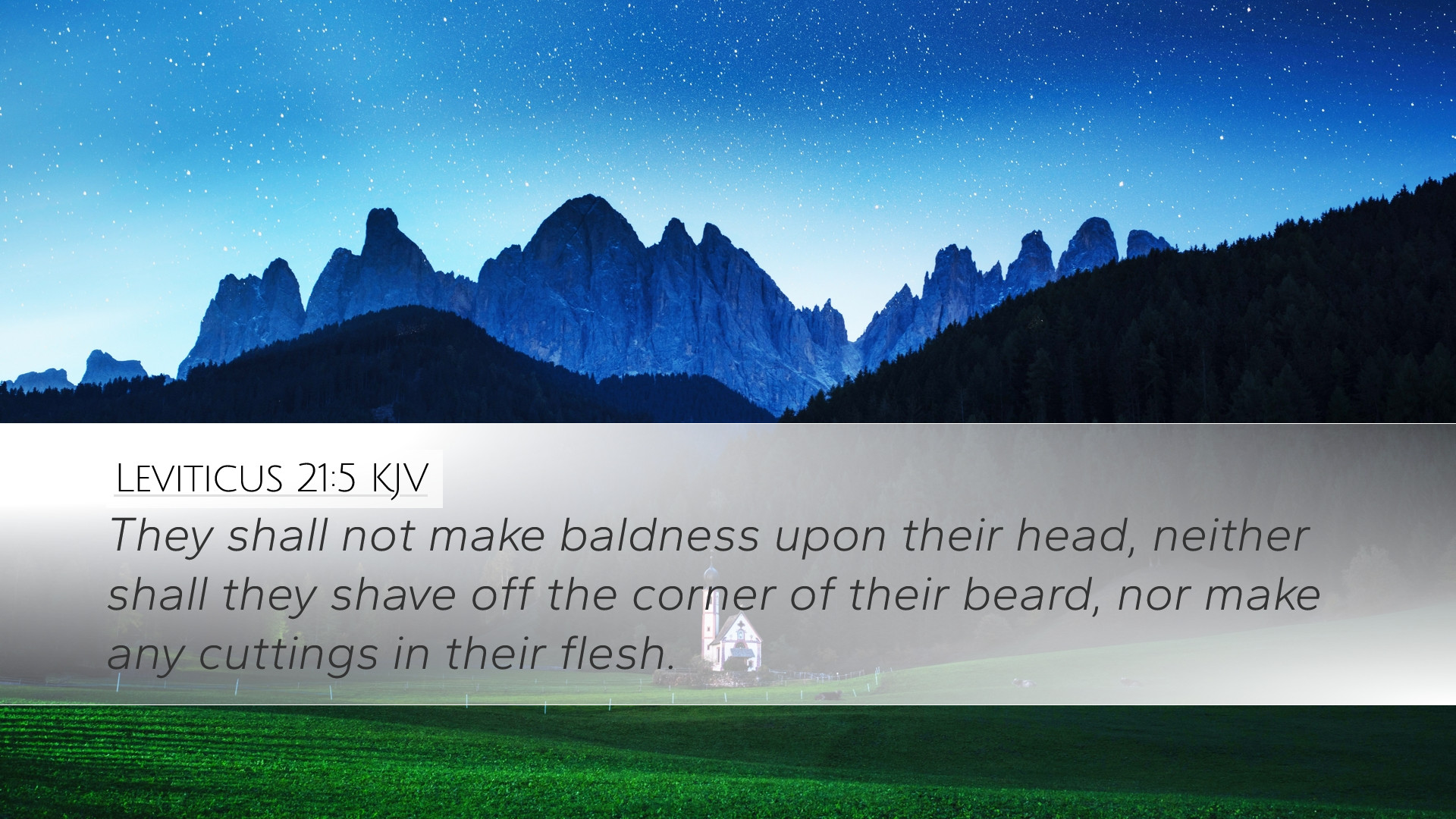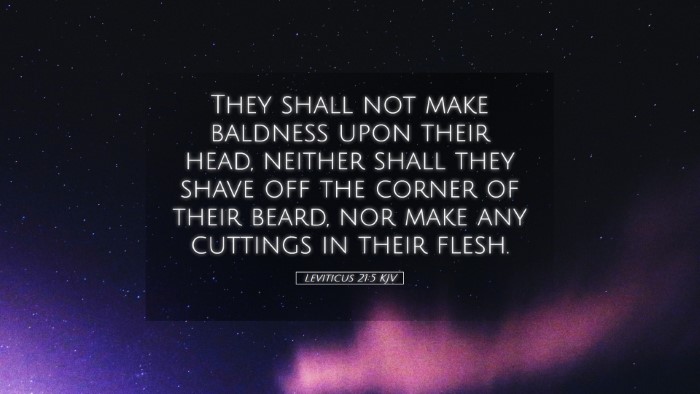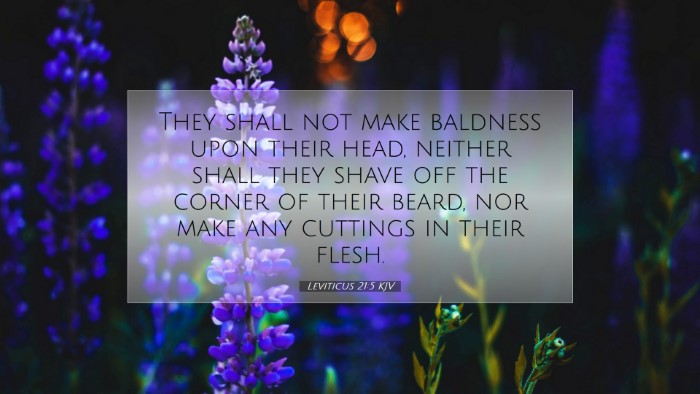Commentary on Leviticus 21:5
Verse Reference: Leviticus 21:5 - "They shall not make baldness upon their head, neither shall they shave off the corner of their beard, nor make any cuttings in their flesh."
Contextual Background
The book of Leviticus, part of the Mosaic Law, provides a comprehensive guide to the religious, moral, and ceremonial behaviors expected of the Israelites. Chapter 21 specifically outlines the qualifications and restrictions for the priests. This verse addresses practices associated with mourning and pagan rituals, which were to be avoided among the priests to maintain their holiness.
Insights from Public Domain Commentaries
Matthew Henry’s Commentary
Matthew Henry emphasizes the imperative of separation from worldly practices. He elucidates that the priests were to represent the sacredness of God. By distinguishing their appearance and conduct from that of the pagan nations surrounding them, they demonstrated a commitment to God’s holiness. The cutting of hair and beard, common practices in mourning or pagan worship, signified a departure from one's dignity, which was to be avoided by those serving God. He states that these external marks of mourning do not reflect the inner peace provided by God and thus are inappropriate for the priests.
Albert Barnes’ Notes on the Bible
Albert Barnes provides a more historical and cultural perspective, explaining that the customs referenced in Leviticus 21:5 were prevalent in the surrounding nations. Barnes notes that baldness and cutting of the beard were often associated with mourning rituals or pagan worship, specifically connected with idolaters as a way to appease their gods. Therefore, adhering to these prohibitions establishes the Israelites' unique identity as God’s chosen people. The avoidance of these practices was a means to maintain the sanctity and distinctiveness of their priestly service. Barnes concludes that adhering to divine statutes enables one to fulfill their religious duties without the distraction of secular customs.
Adam Clarke’s Commentary
Adam Clarke expands on the implications of the physical appearance of the priests. He posits that external modifications, such as baldness or cutting the beard, often point to internal conditions of grief and mourning. Nevertheless, Clarke argues that the priests, as intermediaries between God and the people, were to maintain a demeanor of joy and holiness. Also, he discusses the broader principle of the necessity for holiness in personal appearance as reflective of one's inner spiritual state. Clarke indicates that these prohibitions served a dual purpose: maintaining sanctity before God and serving as a visible testament of the priest’s commitment to their God-given responsibilities.
Theological Implications
The instructions given in Leviticus 21:5 speak to a deeper theological truth regarding the nature of holiness and distinction in the life of a believer. The avoidance of practices typically associated with grief can be seen as a broader call for Christians today to rise above cultural norms that compromise their witness.
- Holiness and Separation: The demand for a distinct lifestyle among priests correlates with the New Testament's call for believers to be set apart (1 Peter 2:9).
- Mourning and Joy: The juxtaposition of mourning with the joy expected of priests highlights the New Testament promise of hope in Christ, who provides comfort (Matthew 5:4).
- External vs. Internal: This passage illustrates the principle that outward appearances can reflect inner realities, necessitating a life that showcases God's transformative power.
Application for Modern Believers
For contemporary pastors, students, and scholars of theology, Leviticus 21:5 anchors discussions on the interplay between cultural practices and spiritual integrity. While the specifics may differ, the heart of this command echoes through the ages, reminding believers of their identity in Christ and the obligation to represent that identity faithfully in all aspects of life.
Practical Considerations:
- Encouraging Holiness: Pastors can develop a community ethos where members recognize their call to holiness, reflecting God's character in their appearance and actions.
- Discussion on Cultural Compromise: In a world full of competing narratives, theological discussions should emphasize discernment concerning cultural practices that may undermine Christian witness.
- Support in Grief: While the verse discourages certain expressions of mourning for priests, churches can facilitate healthy grief processes for members while maintaining hope and joy in Christ.
Conclusion
Leviticus 21:5 serves as a poignant reminder of the necessity for holiness and distinctiveness in the life of the believer. Through insights drawn from respected commentators, the verse encourages a faithful examination of contemporary practices against the backdrop of biblical principles. For those in ministry, academia, and earnest study, this passage exhorts every believer to live in a manner worthy of the calling received, embodying the truth that they are set apart as God’s possession.


